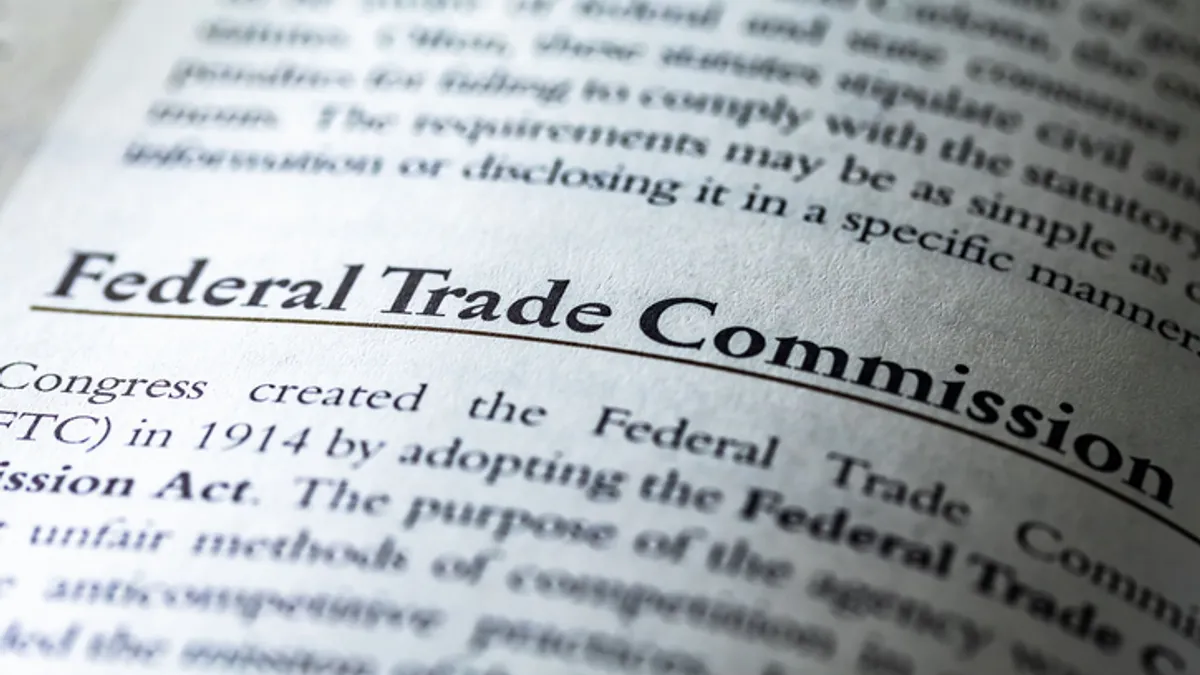Dive Brief:
- A decision by the Federal Trade Commission to challenge a proposed merger under a second Trump administration will probably look a lot like it has for the last four years, because FTC commissioners tend to make enforcement decisions on a non-partisan basis, an analysis by antitrust attorneys at Morgan Lewis indicates.
- If that pattern holds, companies will be focusing on economic factors rather than the policy priorities of the new administration when they decide if a merger makes sense, the attorneys say.
- “The extent of M&A activity will primarily be driven by macroeconomic factors (e.g., interest rates and pent-up demand by America’s large M&A infrastructure), geopolitical dynamics, and US ingenuity,” say the attorneys, who compared FTC enforcement actions between the first Trump administration and the Biden administration. “Only secondarily [will M&A activity likely be influenced] by actual or perceived lessening of government enforcement at the Commission.”
Dive Insight:
By law, the composition of the 5-member FTC commission reflects a 3-2 partisan split, with two members appointed from each party and the chair typically selected to reflect the party controlling the administration. For his upcoming term, President-elect Donald Trump has named Republican-appointed commissioner Andrew Ferguson as chair, replacing Biden-appointed Lina Khan, who is expected to step down this month.
In only 11 of 83 proposed deals challenged by the agency during the first Trump administration and the Biden administration were the commissioners split on a partisan basis over whether a deal warranted an enforcement action. That represents about 13% of cases. In another four deals the commissioners were split on a non-partisan basis.
That means in roughly 85% of cases, the commissioners agreed unanimously to take the enforcement action.
“The political party affiliation of Commissioners has not led to significant differences in voting for merger enforcement,” the attorneys say.
For the analysis, an enforcement action is an agency complaint filed with a court, regardless of whether the court releases a decision or the companies opt for a pre- or post-litigation settlement with the government.
The one area where there was some partisan difference is over the type of enforcement action. In cases where the agency settled with the companies, Democrats tended to dissent more than the Republicans on the view the settlement didn’t go far enough.
“Democratic and Republican Commissioners typically split their vote with respect to the type of enforcement warranted, rather than whether enforcement was warranted at all,” the analysis said.
About a third of all enforcement actions involved life sciences companies, making them the hardest hit in both administrations. In these cases involving settlements, Democrats tended to prefer tougher terms, consistent with their preference for tougher terms across the board.
The analysis was conducted by partners Harry Robins, David Brenneman, Joshua Goodman, Ryan Kantor and Qian Zhu, and associate Damos Anderson.











